What if there was a way to rewire your nervous system, heal past emotional, physical, and spiritual wounds and in turn, create the external reality of our dreams? Contemplative Coach, and Master NLP (Neuro-Linguistic Programming) Practitioner Crystallin Dillon shares her personal journey and the events that led her down the path of wanting to free others of their pain and her massive perspective shift in college which resulted in finding and practicing NLP. Crystallin reviews the different types of attachment styles, and describes how they set the course for beliefs, patterns, and yes… results in our later life. Lastly, she describes the overview of NLP, how it shapes the story we tell about ourselves and the world around it and tips on getting started within the modality.
Takeaways:
[7:05] From a very early age, we develop a set of beliefs and strategies to protect ourselves against the painful feelings of loss and rejection. We carry these patterns and beliefs to adulthood into relationships with our coworkers, friends, and romantic partners.
[9:06] Most of the population has a secure attachment style. They never had a reason to question their attachment bond, and are tethered by an “umbilical cord” of support, love and nurturing. Crystallin’s loss of her mother at an early age brought up feelings of isolation, loneliness and confusion.
[10:08] If there are breaks in the attachment patterns emerge such as avoidance, anxious or disorganized attachment styles which are a continuation of our early patterns.
[13:12] While in an anthropology class at Brandeis University, Crystallin, read the book Emotionally Involved, a collection of stories from rape and sexual assault victims. Their astounding stories of trauma and pain shook her deeply to the core, changing her deeply.
[17:08] It was at Naropa University that Crystallin found the environment fostering the wisdom and compassion she was searching for. She obtained her Masters in Contemplative Psychotherapy and opened up a private practice.
[20:07] Around age 26, Crystallin’s stress and exhaustion caught up with her. She shut down her private practice and worked as an accountant. She was burned out and confused about her path but knew that her self-exploration and development was far from over.
[21:52] Crystallin found NLP which stands for neuro-linguistic programming which provides the opportunity to rewire our nervous systems through thoughts and words, and heal our attachment wounds.
[31:21] In August of 2017, Crystallin started her first NLP T-Group at her house, and was surprised at a turnout of more than 40 people. (T-Group comes from National Training Laboratory in the 1940's. The foundation is based on the idea by revealing what is truly happening in the present moment, we may understand and fully connect with ourselves and others.)
[33:16] Check out Super Power U Episode #20 for more on the concept and practice of Mirroring.
[34:24] NLP explores and cracks open the automatic meaning-making processes that happen outside of conscious awareness. If the brain is making meaning about things that determine how we feel, that makes an impact on how we act towards ourselves and others.
[39:07] The more one practices NLP, the mind becomes very aware of itself. In time, the ease of which one can be vulnerable and authentic will free others to be vulnerable and get free themselves.
Mentioned in This Episode:
Emotionally Involved: The Impact of Researching Rape by Rebecca Campbell
What Lisa's Listening To
The Business Made Easy Podcast with Jason Skinner
Quotes
“I knew I needed to respond in some way, even if it was to listen and draw a mirror.”
“I saw the pain out in the world and it woke me up to how much pain was in me.”
“If we understand the programming language of consciousness, we can change the software.”
“It’s like pulling the veil back and speaking directly to the stuff that’s usually completely underground in most conversations.”
“What we experience is so incredibly determined by the meaning we ourselves are making about what stuff means.”
“We learn how to bring more present moment and self-revealing.”
“You don’t want to blast someone with high voltage vulnerability, but if you do it a little bit at a time people usually follow suit and appreciate it.”
“I seem to reach into subterranean dynamics of life, and put words to it.”
Super Power U Resources:
- Feedback and show ideas to hey@lisabl.com
- Super Power U Facebook Page
Lisa Betts-LaCroix on Twitter — @LisaBL - Super Power U Podcast on iTunes, Stitcher, Google Play
LisaBL.com
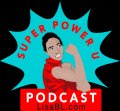


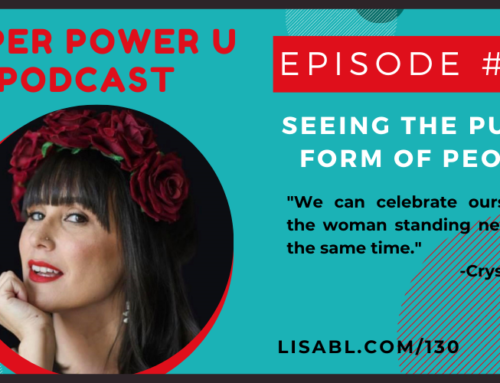
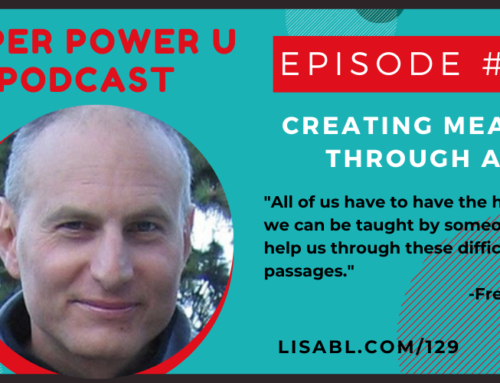
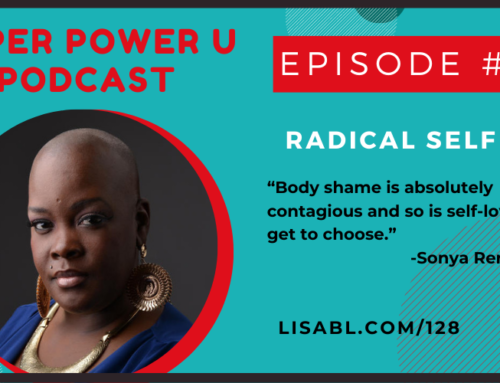
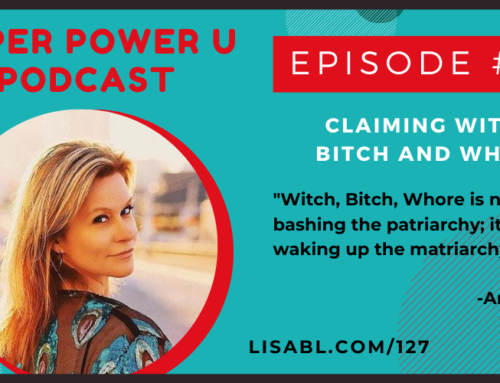
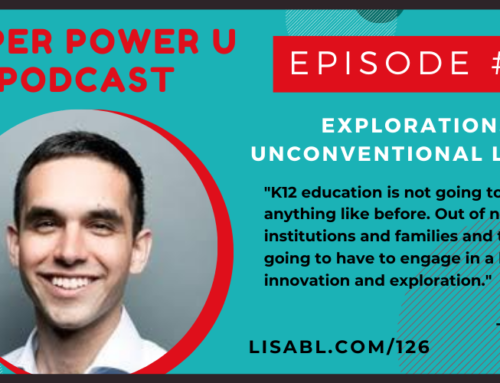
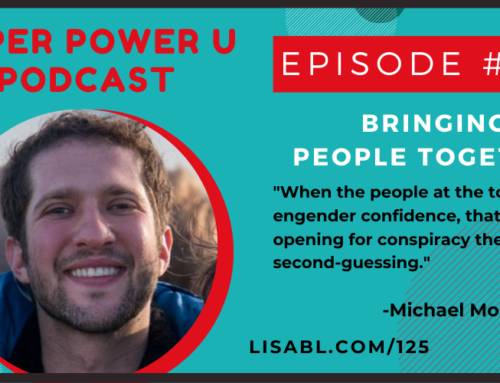
Leave A Comment